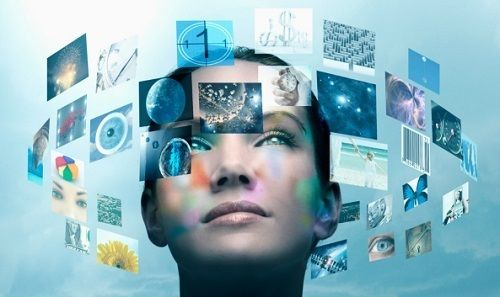The technology revolution has led to the creation and adoption of intelligent applications that are transforming the way we live and do business. These applications, driven by emerging technologies such as artificial intelligence (AI), machine learning and natural language processing, offer more personalized, efficient and adaptive experiences. In this extensive article, we will explore intelligent applications in depth, from their fundamentals to practical examples, highlighting how they are shaping the present and designing the business future. This content aims not only to inform, but also to provide a solid foundation for SEO optimization and improve your page visibility in search engines.
At the crossroads of technological innovation, smart applications emerge as architects of change, transforming the way we interact, live and do business. This article dives into the fascinating world of smart apps, driven by disruptive technologies such as artificial intelligence, machine learning and natural language processing.
From the foundations of these innovations to tangible examples, we will explore in depth how these applications are sculpting the present and designing the business landscape of the future. More than just an exposition of data, this exploration aims to provide a deep understanding, offering not only knowledge, but also a solid foundation for improving your page visibility in search engines through SEO optimization. Join us on this journey where smart applications are not only tools, but pioneers of a new digital era!
In the dizzying rise of the technological age, smart applications emerge as catalysts of a revolution that redefines our daily interactions and the very fabric of society. This comprehensive analysis dives into the fascinating universe of smart apps, driven by cutting-edge technologies such as artificial intelligence, machine learning, and natural language processing.
From their genesis to tangible examples, we will thoroughly explore how these applications are shaping today’s reality and molding the future trajectory of the business environment. This journey goes beyond superficial information, seeking to provide a holistic understanding that not only feeds knowledge, but also establishes solid foundations to optimize your page visibility in search engines, emphasizing relevance and authority. Join us on this journey where smart applications are not only protagonists, but harbingers of a new digital era that is transforming our present and defining our future!
Smart Applications: An In-Depth Look
Smart applications are those that use advanced technologies to collect, process and analyze data in order to offer smarter, more intuitive and efficient services. These applications go beyond basic functions, incorporating AI capabilities to learn and adapt as they interact with users and the environment.
In the vast technological landscape, smart applications stand out as pioneers that transcend conventional functions. By leveraging advanced technologies, these applications not only execute tasks, but dive into the realm of intelligence. This article will take us into the essence of these innovative tools, exploring how they use AI capabilities to collect, process and analyze data, thus offering more intuitive and efficient services.
A fascinating journey that goes beyond basic functionality, introducing us to a world where applications not only respond, but also learn and adapt with every interaction. Welcome to the technological revolution with applications that have a wit of their own!
The landscape of smart apps reveals itself as an ecosystem where innovation and intelligence converge to transform the digital experience. These apps go beyond convention, incorporating a diverse set of technologies to deliver solutions that anticipate needs and provide answers before questions are asked.
By fusing machine learning capabilities with intuitive interfaces, these applications are shaping the future of human-machine interaction. In this review, we will explore how these tools not only process data, but also interpret contexts, enabling a deeper and more meaningful connection between machines and their users. Get ready to dive into a journey where technology becomes a smart companion in the digital everyday!
Artificial Intelligence in Applications:
We will explore how artificial intelligence has become the core of intelligent applications, enabling functions such as pattern recognition, unstructured data processing and autonomous decision making. We will analyze how these capabilities transform conventional applications into more powerful and versatile tools.
Machine Learning for Personalization:
We will detail how machine learning is applied in personalizing experiences. Intelligent applications use algorithms to analyze user behavior and dynamically adjust features, recommendations and content to meet individual preferences.
Natural Language Processing:
We will dive into natural language processing (NLP) and how it enables applications to understand and generate text more naturally. We will examine cases where applications use PLN for chatbots, virtual assistants and sentiment analysis in text.
Immersed in the fascinating realm of technology, we will explore how artificial intelligence has emerged as the epicenter of applications, unleashing extraordinary capabilities such as pattern recognition, unstructured data processing and autonomous decision making. This meticulous analysis will unravel the metamorphosis of conventional applications into tools of incredible versatility and power, powered by the magic of artificial intelligence.
In the realm of machine learning, we will dive into the fascinating realm of personalization. We will detail how machine learning algorithms become architects of tailored experiences, analyzing user behavior to dynamically adjust features, recommendations and content, thus creating intelligent applications that adapt to individual preferences.
Shifting the focus, we will explore the depths of natural language processing (NLP) and its crucial role in understanding and generating text naturally. From implementation in chatbots and virtual assistants to sentiment analysis in text, we will examine fascinating cases that illustrate how intelligent applications leverage PLN to power interactions and understand the complexity of human language. Join us on this journey of technological discovery where each chapter reveals a new spectrum of possibilities!
Smart Applications Categories.
Health and Wellness:
We will explore how smart apps are revolutionizing healthcare, from health monitoring to AI-assisted diagnosis. Practical examples will demonstrate how these apps improve quality of life and efficiency in healthcare delivery.
Educational and Learning:
We will analyze how smart apps transform learning, personalizing the educational experience and providing support tools for students and educators. Specific examples will illustrate how adaptability and interactivity enhance learning effectiveness.
Productivity and Business:
We will detail how intelligent applications are optimizing business productivity. From task automation to predictive analytics in decision making, these applications are redefining how businesses operate and compete in a dynamic business environment.
Entertainment and Media:
We’ll dive into how smart applications are transforming entertainment and media. From personalized recommendations to immersive experiences, we will examine how AI is driving content creation and consumption.
We’ll discover the frontiers of technological innovation as we explore how smart apps are shaping the travel and hospitality industry. From smarter booking solutions to personalized in-travel experiences, we’ll examine how these apps improve efficiency and user satisfaction in the vast world of travel.
In the realm of design and creativity, we will look at how smart applications are driving creativity and simplifying creative processes. Specific examples will illustrate how artificial intelligence is becoming a valuable ally in the generation of visual content, graphic design and artistic experiences, redefining the landscape of digital creativity. Join us on this journey where technology and creativity converge to create new possibilities!
Strategies for Intelligent Applications Success
Data Analytics for Continuous Improvement:
Implement robust data analytics systems to understand how users interact with your application. Examine key metrics, such as retention rates, usage times and conversions, to identify areas for improvement and optimization.
Rigorous Pre-Launch Testing:
Before releasing your app to the public, conduct extensive testing. Test on different devices, operating systems and usage scenarios. Rigorous testing will help identify and fix problems before they reach end users.
Integration with Emerging Technologies:
Stay on top of emerging technologies and evaluate how they can be integrated into your application. Functionalities such as augmented reality, the internet of things (IoT) or quantum computing could offer exciting opportunities to enhance the user experience.
Digital Marketing Strategy:
Develop a solid digital marketing strategy to raise awareness of your app. Use social media, blogs, email campaigns and other tactics to increase visibility and attract new users.
Active User Feedback:
Foster a culture of active feedback. Create communication channels, such as comment forms or user forums, where users can express their opinions. This continuous feedback is invaluable for making improvements and adjustments according to user needs.
Integration with Existing Systems:
If your application will be used in enterprise environments, make sure it integrates effectively with existing systems. The ability to work seamlessly with other tools and platforms will increase its usefulness and acceptance.
Sustainable Development:
Consider sustainability in the development of your application. Optimize energy efficiency, reduce your carbon footprint and value environmentally friendly development practices. Modern users increasingly appreciate sustainability.
Strategic Monetization:
If your app has a business model that involves monetization, choose strategies that are transparent and offer clear value to users. This may include subscription models, in-app purchases or advertising, depending on the context of your app.
User Community:
Encourage the creation of a community around your app. This can be through social networks, forums or virtual events. An active community not only provides mutual support among users, but also strengthens brand loyalty.
Constant Updates:
Plan regular updates for your application. Updates can not only fix bugs and improve security, but also demonstrate to users that the application is constantly evolving and improving.
Practical Examples of Smart Applications
Personal Virtual Assistants:
We will explore how virtual assistants such as Siri, Alexa and Google Assistant use artificial intelligence and natural language processing to understand and respond to user requests, from scheduling reminders to searching for information online.
Health and Activity Tracking Apps:
We will detail apps such as Fitbit and MyFitnessPal, which use sensors and algorithms to accurately track physical activity, calories burned and other aspects of health, providing users with valuable information to maintain a healthy lifestyle.
Personalized Recommendations on Streaming Platforms:
We will analyze how streaming platforms such as Netflix and Spotify use machine learning algorithms to analyze users’ viewing or listening history and provide personalized content recommendations, improving user experience and retention.
Machine Translation Applications:
We will dive into applications such as Google Translate, which use natural language processing technologies to efficiently translate between languages, facilitating global communication and eliminating language barriers.
Predictive Analytics in Enterprise Applications:
We will detail how enterprise applications such as Salesforce and Tableau use AI-based predictive analytics to provide strategic insights to businesses, from identifying sales opportunities to supply chain optimization.
Challenges and Ethical Considerations in Intelligent Applications.
Technical and Security Challenges:
We will examine the technical challenges associated with developing and deploying smart applications, such as data quality, cyber security, and interpreting AI models.
Ethical and Privacy Considerations:
We will discuss ethical concerns surrounding the use of personal data in smart applications, highlighting the importance of privacy and transparency in handling sensitive information.
Fairness and Algorithmic Bias:
We will dive into the discussion of fairness and bias in algorithms used by smart apps, exploring how developers can address these issues to ensure fair and equitable treatment.
We will explore how smart applications are transforming the field of agriculture and sustainability. From crop monitoring systems to efficient resource management, we will examine how artificial intelligence is contributing to the creation of smarter and more environmentally friendly farming practices.
In the logistics and transportation sector, we will investigate how smart applications are optimizing supply chains and revolutionizing delivery services. From more efficient route planning to real-time fleet management, we will explore how these applications improve operational efficiency and reduce environmental impact in freight transportation. Join us on this journey where technology is driving significant transformation in the way we farm, transport and manage resources!
Present and Future Impact of Smart Applications
In conclusion, smart apps are radically transforming the way we interact with technology and each other. From improving our health to personalizing our learning and entertainment experiences, these apps have proven to be powerful and versatile tools. However, this journey towards intelligence is not without its challenges, and it is crucial to address them responsibly and ethically.
At the forefront of the technological revolution, smart applications are rising as agents of change, redefining our interaction with technology and each other. This article dives into the radical transformation driven by these apps, from empowering our health to personalizing our learning and entertainment experiences. While these tools have proven to be powerful and versatile, this journey towards intelligence is not without its challenges, demanding a responsible and ethical approach. Join us in this exploration, where smart applications are not only witnesses, but architects of significant change in our technological landscape.
As smart applications continue to redefine our relationship with technology, their current and future impact is projected as a testament to the digital revolution. These apps, by improving health, personalizing experiences and offering innovative solutions, are cementing themselves as essential tools in our daily lives. However, along with their transformative potential comes the critical need to address ethical and responsibility issues. In this journey of technological discovery, we will explore how smart applications not only shape the present but also forge the path towards a future where artificial intelligence and ethics coexist to enhance our digital existence. Join us on this journey towards a horizon where innovation is intertwined with responsibility!
Present Impact:
We will summarize how smart applications are improving specific aspects of our daily lives, providing efficiency, personalization and convenience. Practical examples will highlight the tangible impact in different sectors.
Designing the Enterprise Future:
We will project how smart applications will continue to evolve and define the enterprise future. From advanced automation to augmented reality, we will explore emerging trends and areas of innovation.
Final Considerations:
We will reflect on final considerations, including the importance of education on emerging technologies, cross-industry collaboration, and the need for ethical standards in smart application development.
Tips:
Focus on User Experience (UX):
User experience is critical to the success of smart apps. Make sure the interface is intuitive, easy to use and adapts to the user’s needs and preferences. Personalization and simplicity are key.
Transparent Communication about AI:
If your app uses artificial intelligence technologies, be sure to communicate transparently about how AI is used, what data is collected, and how user privacy is protected. Transparency builds trust.
Mobile Optimization:
Since many applications are used on mobile devices, it is crucial to optimize your application for mobile platforms. Make sure the app is responsive, fast and looks good on smaller screens.
Security and Privacy:
Make security and privacy a priority. Implement robust security measures to protect user data and comply with privacy regulations. Users should feel safe using your application.
Training and Support:
If your app includes complex features, provide training resources and robust customer support. Clear and accessible assistance can make a difference to users, especially if they are exploring new features.
Monitoring and Continuous Improvement:
Implement monitoring systems to track your application’s performance. Analyze metrics, collect user feedback, and make regular updates to address issues and improve functionality.
User Collaboration:
Invite users to be part of the development process. You can conduct surveys, collect feedback and test new features with a select group of beta users. Direct feedback can provide valuable information to improve the application.
Constant Innovation:
Stay on top of emerging technology trends. Constant innovation ensures that your application remains relevant and competitive. Explore new technologies, such as augmented reality or voice processing, as the market evolves.
Adaptability and Scalability:
Design your application with adaptability and scalability in mind. As the number of users grows, the application must be able to handle higher workloads and still provide an optimal user experience.
Regulatory Compliance:
Familiarize yourself with the regulations and standards related to application development in your industry and geographic location. Complying with legal regulations is essential to avoid legal issues and build a solid reputation.
By incorporating these tips into your smart application development and management strategy, you will be able to deliver a robust, user-centric product that is aligned with market expectations. Good luck with your project!
In the complex universe of smart applications, where user-centricity and transparency in the use of advanced technologies are cornerstones, the importance of effective management emerges. The development strategy should not only focus on user experience and transparent communication, but also embrace agility and the ability to adapt to a constantly changing technological environment.
Active collaboration with users and the constant search for innovation are beacons that guide towards a smart application that is not only successful today, but also sustainable and competitive in the digital tomorrow. Building this robust adaptability and compliance forms the basis for an application that not only meets today’s expectations, but anticipates and embraces the future.





